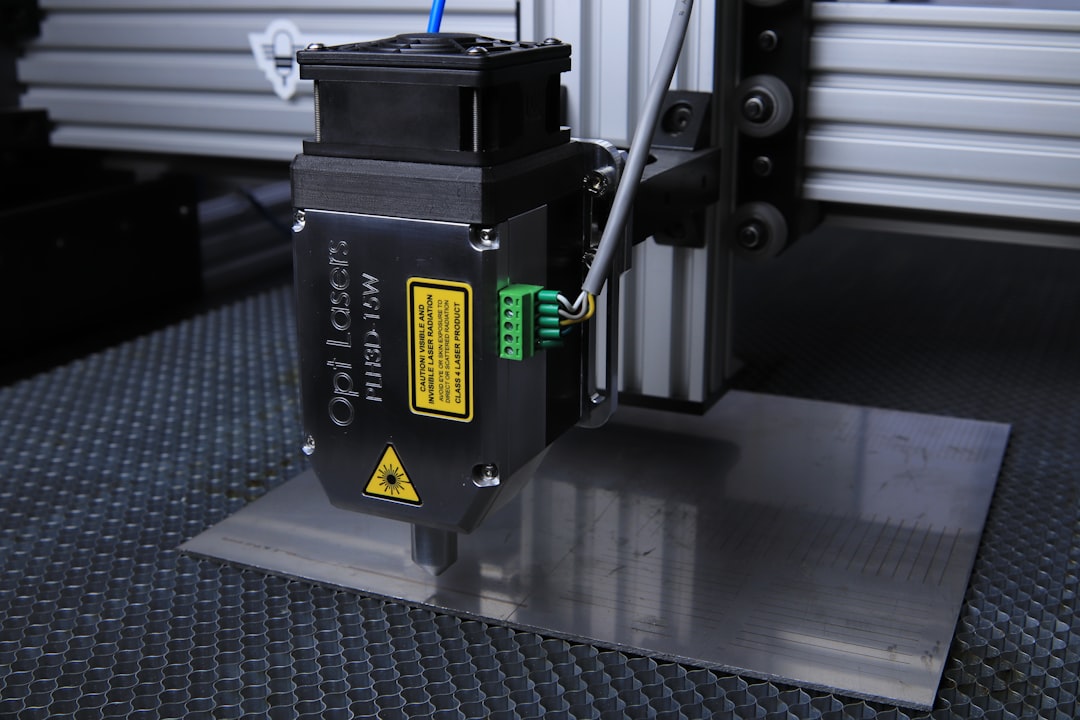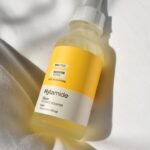When you think about body contouring and hair removal, you might not immediately connect liposuction with laser hair removal. However, these two procedures can complement each other in your journey toward achieving your desired body image. Liposuction is a surgical procedure designed to remove stubborn fat deposits from specific areas of the body, such as the abdomen, thighs, or arms.
This process can significantly enhance your body shape and boost your confidence. On the other hand, laser hair removal is a non-invasive treatment that targets hair follicles to reduce unwanted hair growth. By understanding how these two procedures relate, you can make informed decisions about your aesthetic goals.
After undergoing liposuction, you may find that the areas treated are now more defined and sculpted. This newfound shape can lead to a desire for smoother skin without the hassle of shaving or waxing. Laser hair removal can be an excellent option for achieving that smoothness, especially in areas where hair growth may have been a concern before your liposuction procedure.
By combining these treatments, you can enhance your overall appearance and enjoy the benefits of both body contouring and long-lasting hair removal.
Key Takeaways
- Liposuction and laser hair removal can be connected as both procedures are often performed in the same area of the body, making it convenient to combine them for a more comprehensive result.
- The ideal timing for post-liposuction laser hair removal is typically 6-8 weeks after the liposuction procedure to allow for proper healing and to ensure the best results.
- Considerations for post-liposuction laser hair removal include the type of laser used, the expertise of the provider, and any potential impact on the healing process from the liposuction procedure.
- Potential risks and complications of post-liposuction laser hair removal may include skin irritation, pigmentation changes, and infection, so it’s important to choose a qualified provider and follow aftercare instructions carefully.
- Preparing for post-liposuction laser hair removal involves discussing any medical conditions, medications, or previous treatments with the provider and following any pre-procedure instructions given.
The Ideal Timing for Post-Liposuction Laser Hair Removal
Recommended Waiting Period
Typically, most surgeons recommend waiting at least six to eight weeks post-liposuction before scheduling your laser hair removal session.
Why Waiting is Important
This waiting period allows your body to recover fully, minimizing the risk of complications and ensuring that you achieve the best possible results. During the initial weeks following liposuction, your body will be focused on healing. You may experience swelling, bruising, and tenderness in the treated areas, which can make laser hair removal uncomfortable or even risky.
Optimal Conditions for Laser Treatment
By waiting until your body has had time to heal, you can ensure that the skin is in optimal condition for the laser treatment. Additionally, this waiting period allows you to assess the results of your liposuction and determine if there are any areas where you would like to focus your laser hair removal efforts.
Considerations for Post-Liposuction Laser Hair Removal
Before proceeding with laser hair removal after liposuction, there are several important considerations to keep in mind. First and foremost, it’s crucial to consult with your surgeon or a qualified medical professional who understands your specific situation. They can provide personalized advice based on your healing progress and overall health.
This consultation will help you determine whether you are ready for laser hair removal and if it is appropriate for the areas treated during your liposuction. Another consideration is the type of laser used for hair removal. Different lasers target various skin types and hair colors, so it’s essential to choose a provider who uses advanced technology suited to your needs.
Additionally, consider any changes in skin sensitivity that may occur after liposuction. The treated areas may be more sensitive than before, so discussing this with your provider will ensure that they can adjust their approach accordingly. By taking these factors into account, you can set yourself up for a successful laser hair removal experience.
Potential Risks and Complications
| Risk Factor | Likelihood | Severity |
|---|---|---|
| Infection | Medium | High |
| Bleeding | Low | Medium |
| Organ Damage | Low | High |
| Adverse Reaction to Anesthesia | Low | Medium |
While both liposuction and laser hair removal are generally safe procedures when performed by qualified professionals, there are potential risks and complications associated with each. After liposuction, you may experience side effects such as swelling, bruising, or infection at the incision sites.
For instance, if your skin is still healing from liposuction, the heat from the laser could irritate the area or lead to complications. Additionally, there are risks specific to laser hair removal itself. These can include skin irritation, changes in pigmentation, or even scarring in rare cases.
It’s essential to discuss these potential risks with your provider before proceeding with treatment. They can help you understand what to expect and how to minimize any complications. By being aware of these risks and taking appropriate precautions, you can make informed decisions about your post-liposuction care.
Preparing for Post-Liposuction Laser Hair Removal
Preparation is key when it comes to ensuring a smooth experience with post-liposuction laser hair removal. First, you should schedule a consultation with a qualified provider who specializes in laser treatments. During this appointment, they will assess your skin type, discuss your goals, and evaluate the areas where you want to undergo hair removal.
This initial meeting is also an excellent opportunity for you to ask questions about the procedure and express any concerns you may have. In addition to consulting with a provider, there are practical steps you can take to prepare for your treatment. For instance, avoid sun exposure in the weeks leading up to your appointment, as tanned skin can increase the risk of complications during laser treatment.
You should also refrain from using any products that could irritate your skin, such as retinoids or exfoliants. Following these guidelines will help ensure that your skin is in optimal condition for the procedure and that you achieve the best possible results.
Aftercare and Recovery
Immediate Aftercare
After undergoing laser hair removal following liposuction, it’s essential to take good care of the treated areas to ensure optimal results and minimize discomfort. Immediately after the procedure, you may experience some redness or swelling in the treated areas; this is normal and should subside within a few hours to a few days. To help manage any discomfort, consider applying a cool compress to the area or taking over-the-counter pain relievers as recommended by your provider.
Post-Treatment Care
In the days following your treatment, it’s crucial to follow any aftercare instructions provided by your provider carefully. This may include avoiding sun exposure, refraining from strenuous exercise for a short period, and keeping the treated area clean and moisturized.
Promoting Healing and Reducing Complications
By adhering to these guidelines, you can promote healing and reduce the risk of complications while enjoying the benefits of smoother skin.
Choosing a Qualified Provider for Post-Liposuction Laser Hair Removal
Selecting a qualified provider for your post-liposuction laser hair removal is one of the most critical steps in ensuring a successful outcome. Start by researching practitioners in your area who specialize in laser treatments and have experience working with patients who have undergone liposuction. Look for reviews and testimonials from previous clients to gauge their satisfaction with the provider’s services.
During your consultation, pay attention to how comfortable you feel with the provider and their staff. A qualified professional should take the time to answer all of your questions thoroughly and address any concerns you may have about the procedure. Additionally, they should explain their approach to safety and how they tailor treatments based on individual needs.
By choosing a provider who prioritizes patient care and has a solid track record of success, you can feel confident in moving forward with your post-liposuction laser hair removal.
Realistic Expectations and Results
As with any cosmetic procedure, it’s essential to have realistic expectations regarding the results of post-liposuction laser hair removal. While many patients experience significant reductions in unwanted hair growth after just a few sessions, individual results can vary based on factors such as hair type, skin type, and hormonal influences. Understanding that multiple sessions may be necessary will help you set achievable goals for your treatment.
Moreover, it’s important to remember that while laser hair removal can lead to long-lasting results, it may not guarantee permanent hair removal for everyone. Some individuals may require maintenance treatments over time to keep unwanted hair at bay. By discussing these expectations with your provider during your consultation, you can develop a personalized treatment plan that aligns with your goals and helps you achieve the smooth skin you desire after liposuction.
In conclusion, understanding the connection between liposuction and laser hair removal can empower you on your journey toward achieving your ideal body image. By considering factors such as timing, preparation, aftercare, and choosing a qualified provider, you can enhance your overall experience and results from both procedures. With realistic expectations in mind, you can look forward to enjoying smoother skin and increased confidence as you embrace your new look.
If you are considering laser hair removal after liposuction, it is important to consult with a professional to determine the best timing for the procedure. According to a related article on In Laser Hair Removal, it is generally recommended to wait at least 6-8 weeks after liposuction before undergoing laser hair removal. This allows the body enough time to heal and reduces the risk of complications. Additionally, the article on com/customize-interests/’>In Laser Hair Removal discusses the importance of customizing your hair removal treatment to suit your individual needs and skin type.
By following these guidelines and seeking professional advice, you can achieve optimal results and maintain the health of your skin.
FAQs
What is laser hair removal?
Laser hair removal is a cosmetic procedure that uses a concentrated beam of light (laser) to remove unwanted hair. The laser targets the pigment in the hair follicles, damaging them and inhibiting future hair growth.
What is liposuction?
Liposuction is a surgical procedure that removes fat from specific areas of the body, such as the abdomen, thighs, hips, and arms. It is commonly used to improve body contour and is not a weight loss method.
When can I do laser hair removal after liposuction?
It is generally recommended to wait at least 6-8 weeks after liposuction before undergoing laser hair removal. This allows the body to heal and reduces the risk of complications.
Why should I wait before doing laser hair removal after liposuction?
Liposuction involves the use of incisions and the disruption of tissue, which can lead to inflammation and sensitivity in the treated areas. Waiting for the body to heal reduces the risk of complications and ensures better results from the laser hair removal treatment.
Are there any risks associated with doing laser hair removal after liposuction?
Undergoing laser hair removal too soon after liposuction can increase the risk of complications such as skin irritation, burns, and scarring. It is important to follow the recommended waiting period to minimize these risks.
Can I consult with a professional to determine the best timing for laser hair removal after liposuction?
Yes, it is highly recommended to consult with a qualified and experienced cosmetic surgeon or dermatologist to determine the best timing for laser hair removal after liposuction. They can assess your individual situation and provide personalized recommendations.








